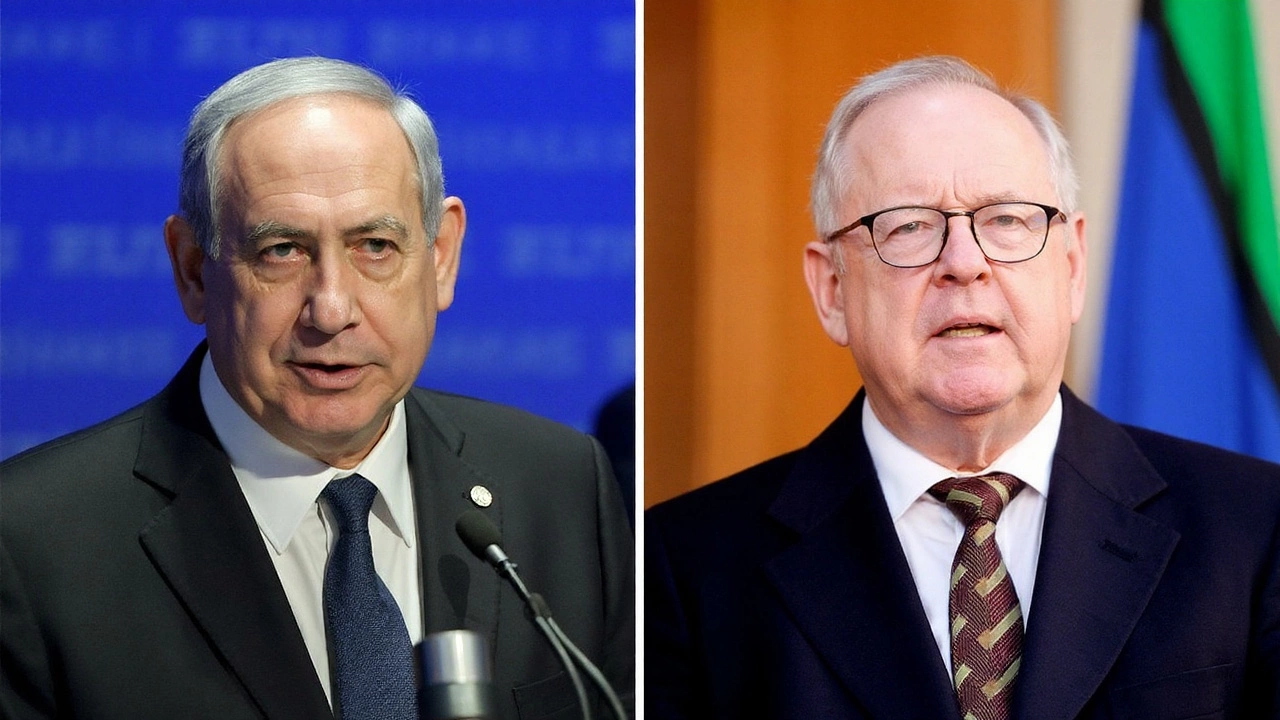In a letter that has quickly become headline news in both capitals, Israeli Prime Minister Netanyahu set a firm deadline for Australian Prime Minister Anthony Albanese: take concrete steps to curb antisemitism in Australia by the start of Rosh Hashanah, the Jewish New Year. The correspondence, sent on September 22, 2025, blends diplomatic rebuke with a symbolic deadline that underscores the urgency Israel feels about protecting Jewish communities worldwide.
Background to the diplomatic row
Over the past six months, Australia has seen a noticeable uptick in incidents targeting its Jewish population. Law‑enforcement data released by the New South Wales Police indicate a 38 % rise in reported hate crimes against Jews compared with the same period last year. Among the most alarming events were the defacement of the Sydney Jewish Museum with graffiti that read "Death to Israel," an arson attack on a small synagogue in Melbourne that left its roof charred, and a series of coordinated vandalism actions against community centers in Brisbane.
These attacks prompted protests and a wave of condemnation from local Jewish organizations. The Executive Council of Australian Jewry (ECAJ) has been vocal, organizing the Australian Mayors Summit Against Antisemitism on the Gold Coast in September 2025. Yet, according to the letter, prime ministerial responses have been “spineless,” a phrase Netanyahu used to describe what he sees as a lack of decisive government action.
The letter also ties the surge in hate crimes to broader policy disagreements. Since the Australian government’s decision in May 2025 to endorse a UN resolution calling for a two‑state solution, Israeli officials have accused Canberra of giving moral cover to groups like Hamas. Albanese’s administration has allowed several pro‑Palestinian rallies to proceed, some of which featured chants calling for the destruction of Israel. Netanyahu alleges that this tolerance amounts to an “embrace of the Hamas agenda.”
Diplomatic friction has already been simmering. In August 2025, the Israeli foreign ministry revoked the visas of three Australian diplomats after Canberra barred an Israeli parliamentarian from entering the country to attend a conference on Middle‑East peace. The episode highlighted the widening gulf between the two nations’ approaches to the Israeli‑Palestinian conflict.
Implications and reactions
Netanyahu’s ultimatum is more than a diplomatic warning; it signals a shift in Israel’s strategy of direct engagement with world leaders. Similar letters have been sent to French President Emmanuel Macron and German Chancellor Olaf Scholz, each accusing them of enabling antisemitic sentiment through perceived leniency toward Hamas.
In Australia, the reaction has been mixed. The Albanese government, while acknowledging the seriousness of antisemitism, has rejected the notion that its policies “reward” Hamas. A spokesperson for the prime minister’s office said: “We are committed to protecting all Australians, regardless of faith. Our approach balances security, civil liberties, and the right to peaceful protest.”
Opposition leader Peter Dutton, however, seized on the letter to push for stricter hate‑crime legislation. In a televised interview, Dutton pledged to introduce a bill that would increase penalties for vandalism of religious sites and expand the definition of hate crimes to include online harassment targeting Jewish Australians.
Jewish community leaders have welcomed the heightened attention but remain wary of political posturing. Rabbi David Lea of the Melbourne Jewish Community Center told reporters: “We need real resources on the ground – more police patrols at synagogues, swift prosecution of offenders, and educational programs that counter hate. A deadline is symbolic, but action must follow.”
The timing of the deadline—coinciding with Rosh Hashanah—adds a layer of cultural urgency. For many Jews, the holiday marks a period of reflection and renewal. By linking the deadline to this sacred time, Netanyahu aims to frame the issue of antisemitism not only as a political failure but also as a moral one that threatens the dignity of Jewish life during its most holy observances.
International observers note that the letter could have ripple effects beyond bilateral relations. If Canberra adopts stricter measures, it may set a precedent for other Western democracies grappling with similar spikes in hate crimes. Conversely, a perceived capitulation to Israeli pressure could spark backlash among civil‑rights groups who argue that such moves risk curtailing free speech.
- Key incidents cited in the letter: graffiti attacks in Sydney, arson in Melbourne, vandalism in Brisbane, physical assaults during protests.
- Recent diplomatic strain: visa revocations for Australian diplomats, ban on Israeli lawmaker’s visit.
- Political responses: Albanese’s defense of policy balance, Dutton’s push for tougher hate‑crime laws.
- Community actions: ECAJ’s Mayors Summit, calls for increased police protection at religious sites.
As the Rosh Hashanah deadline approaches, all eyes will be on how the Australian government translates rhetoric into concrete steps. Whether through enhanced security measures, legislative changes, or community outreach, the next few weeks could define a new chapter in the fight against antisemitism in Australia and set the tone for Israel’s broader diplomatic tactics moving forward.
